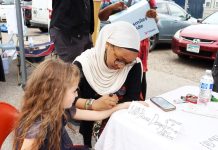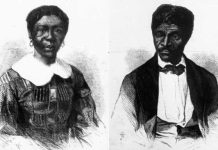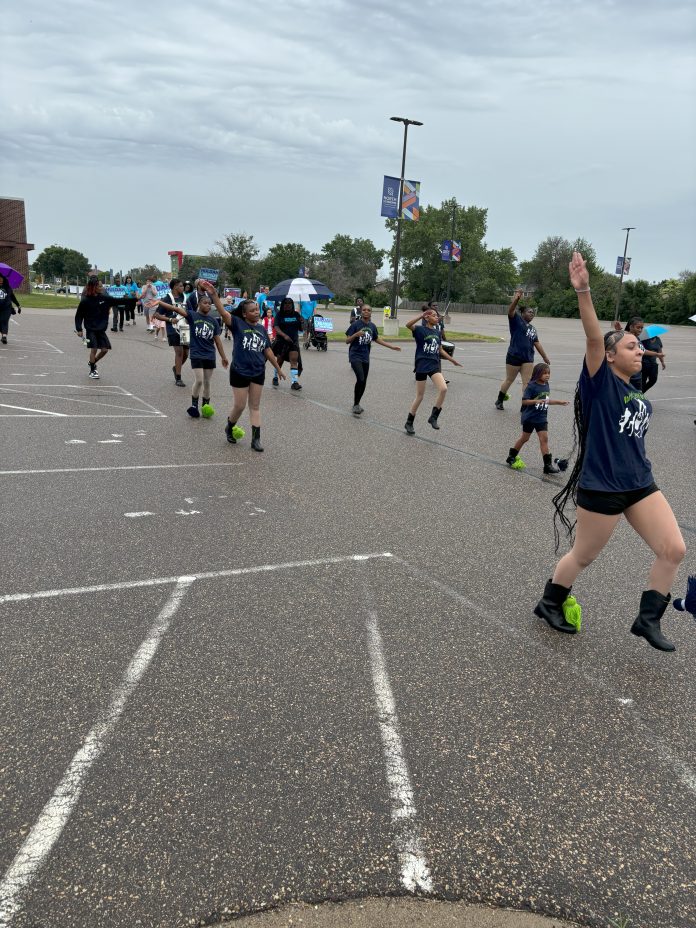
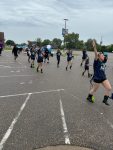
The City of Brooklyn Park hosted its annual celebration of Juneteenth, a holiday that is often referred to as the Independence Day of African Americans.
The Juneteenth celebration kicked off with a parade. Sounds of snare drums, bass drums and children rhythmically screaming echoed off buildings as a local dance group, Unlimited & Next Level Drill & Dance marched around North Hennepin Community College, where the celebration took place.
The event’s theme, “Black Art, Health, and Healing”, was meant to bring the community together to celebrate Black history in a day filled with entertainment and historical education.
“The more that we can get together and get to know each other, get to know our differences, I think that overall the world would be a better place,” said Ashawna Williams, Brooklyn Park’s engagement specialist.
Williams said it was important for government and community leaders to come together and do continue to do more “intentional engagement” with residents, especially the youth.
Juneteenth is an annual holiday recognizing the end of slavery in the United States. Although President Abraham Lincoln made the January 1, 1863 Emancipation Proclamation, which ended centuries of enslavement of Black people in the Confederate southern states, it wasn’t until two years later, on June 19, 1965, that the last slaves freed. Juneteenth marks the day Major Gen. Gordan Granger marched into Galveston, Texas, with 2,000 soldiers and announced that all slaves were free through General Order No. 3.
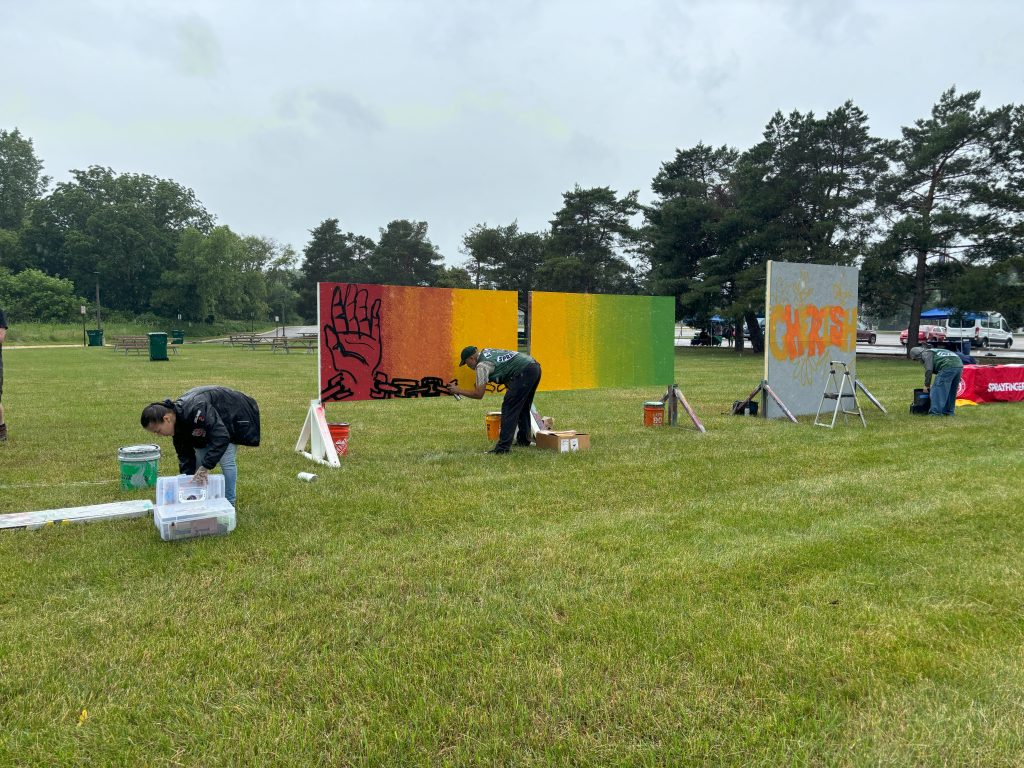
The following year, a group of formerly enslaved people celebrated the decree on the first anniversary. Since then, Juneteenth has gained more significance. In 2021, it became a federally-recognized holiday.
Brooklyn Park’s version of the celebration featured some 20 or so vendors promoting their small businesses, selling everything from cosmetics to beaded jewelry, and paintings. Some tents lined up outside the campus’s Health and Wellness Center also featured local organizations like Minnesota Housing, the Brooklyn Bridge Alliance for Youth, and the Global Fatherhood Foundation.
“What better way [to connect] with our community,” said Ellie Wright, the operations manager for African Career Education and Resources, one of the vendors. “We want to be able to share all these resources that are available to the community. Some people might not know that we exist or they might not know that they qualify for certain resources or programs, so we want to help them voice what they need and then help them acquire that.”
Several food trucks were present, serving an array of dishes like gumbo, fries, tacos and hibachi. Attendees were encouraged to talk to vendors — a slip with five signatures from vendors was their ticket to obtaining a free meal.
Children got a painting tutorial by a self-taught 13-year-old artist, and creatives spray painted whatever their hearts desired outdoors, perfectly on brand with this year’s theme.
“So when I was diagnosed with postpartum cardiomyopathy, which is heart failure due to giving birth, it kind of pushed me back into trying art, which is my original gift.” said vendor and artist April Nichole. “When I was in the hospital six months ago getting a heart transplant, I tapped back into it. That was my ‘woo-sa’ while I was there. It kept me company while I was there for three months. And so I thought that this event, because it has to do with black art and health, it was the best way to connect.”
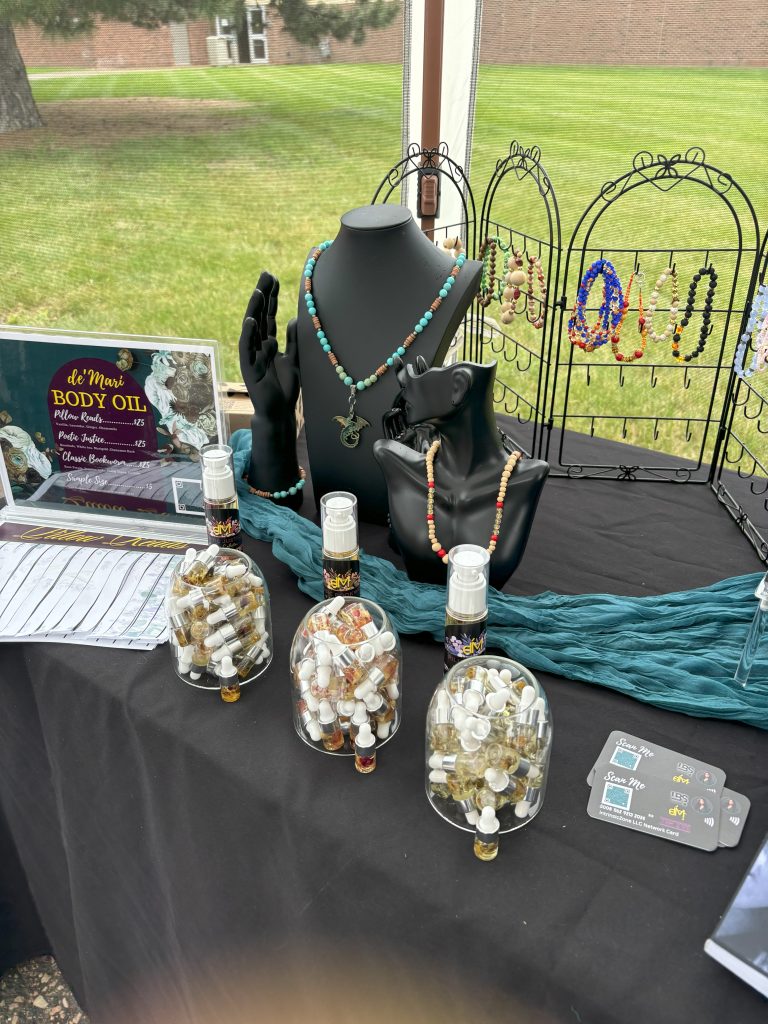
Despite a small turn-out and a forced migration indoors later in the afternoon due to a rainstorm, spirits remained high and optimistic for a future of increased racial equality in Brooklyn Park.
Michael Birchard, co-owner of Frog Tree Farm, Minnesota’s oldest Black-owned farm, said that Brooklyn Park needed a lot of work in the area of equity. He said the event was a great opportunity to expose people to a lot of businesses owned and operated by people of color, and push the city to support them.
“Hopefully, some of the city leaders are here, [and] they’ll be able to see that we exist,” Birchard said. “We don’t just live here; we’re economic drivers of the community as well.”
About Kwot Anwey
Kwot Anwey is a reporting intern with Mshale and majors in journalism at Boston University.


